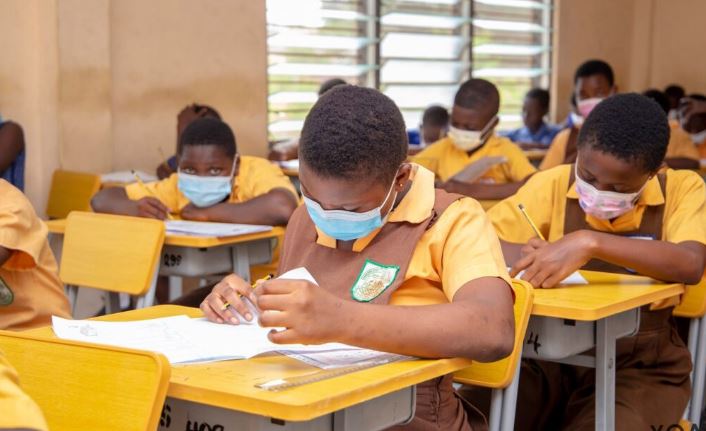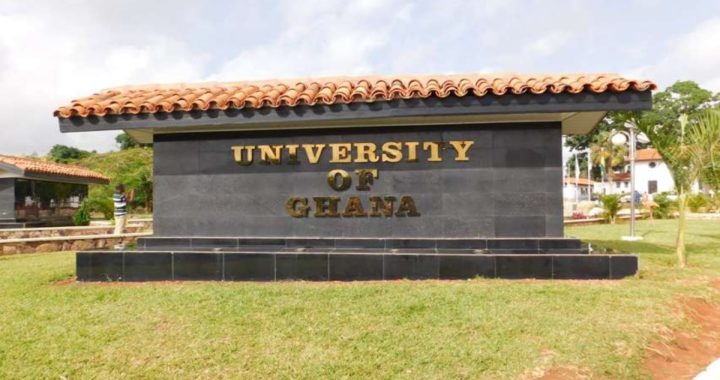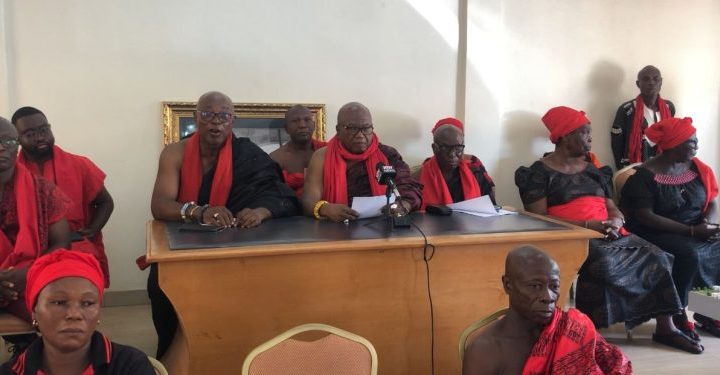WASSCE And BECE Are Always Marked Out Of 70%; Here’s How To Get Your Remaining 30%

Did you know that WASSCE and BECE are always marked and rounded to 70%? What then happens to the 30% which seems to have been deducted from your marks?
Well, it’s quite simple. Over the years, WAEC always give credit to academic activities in our various senior and junior high schools. The exercises, homeworks, end of term exams and project works all form part of the final assessment.
If you get grade A1 in WASSCE or BECE, it doesn’t mean you had that grade solely in the WASSCE or BECE, but rather all class assessments such the homeworks and the exercises formed part of such grade.
The grading for the WASSCE (SC) and BECE (SC) is 70% external examination score and 30% continuous assessment score.
How Can Students Get The Remaining 30% Since WASSCE And BECE Are Marked Out Of 70%
Since WASSCE and BECE are marked out of 70%, then candidates should make sure they get the remaining 30% from the senior and junior high schools they attended. Paying attention in class and taking part in all class assignments will give you a perfect grade in the external exams.
One may perform poorly in the external examinations but if such student has a better grade in the school assessment, it will be very difficult for such student to fail in the exams.
The 2023 WASSCE and BECE is set to take place on July 31 and August 7 respectively. Registration portas for both examination are almost closed.
WAEC is likely to ask questions in the following areas or topics under each subjects for WASSCE candidates. Candidates should master these areas and learn other areas as well.
CORE MATHEMATICS
1. Sets and binary operation
2. Modular arithmetic
3. Statistics & Probability
4. Logarithm and indices
5. Mensuration 1&2
6. Business mathematics [profit loss, depression, ratio]
7. Trigonometry
8. Bearing and vectors
9. Simultaneous equations.
10. Matrix and coordinate geometry (equation of a line)
11. Logic Reasoning
12. Transformation
13. Quadratic graphs, quadratics & functions
14. Series & Sequence
https://ghanaeducation.org/2023-bece-registration-portal-opened-check-out-the-deadline/
SOCIAL STUDIES
THE ENVIRONMENT
1. Adolescent reproductive
2. The institution of marriage
3. Responsible parenthood
4. Education and social change
5. Physical environment and environmental challenges, our culture, and national identity.
GOVERNANCE, POLITICS, AND STABILITY
1. Constitution, democracy, and Nation Building
2. Ghana and the Internationally Community
3. Leadership and fellowship
4. Right and responsibilities
SOCIAL & ECONOMICS DEVELOPMENT
1. The youth and national development
2. Work, productivity, and Entrepreneurship
3. Population Growth and Development
4. Promoting National Socio-economic Development.
INTEGRATED SCIENCE
1. Cells
2. Transports in plants
3. Acids, bases and salts
4. Diseases
5. lonic and covalent bonding
6. Machine
7. Chemical compounds and IUPAC names
8. Friction
9. Photosynthesis
10. Dentition and digestion in mammals
11. Skeleton of mammals
12. Crops production
13. Force and motion
14. Electrical/Heat
15. Ecosystem
16. Evolution, Variation, and inheritance
ELECTIVE MATHEMATICS
COMPULSORY
1. Correlation & Regression
2. Binary operations
3. Functions & Partial fraction
4. Binomial expansion
5. Logarithms/Indices
6. Polynomial
7. Basic calculus
8. Circle theorem
9. Matrix
10. Sequence and Series
OPTIONAL
Statistics (Probability, combination permutation)
700 Vectors & Mechanism
700 Kinematics
100 Calculus (differentiation & integrate
BIOLOGY
1. Microscopy, Biological drawing
2. Cell 1 & 2 as a unit
3. Biology and industry.
4. Humans and their environment
5. Genetic, variation, and ecology
6. Food and nutrition
7. Ecosystem.
8. Excretion/skeletal/respiration
9. Plant anatomy
10. Transport system
11. Paramecium, tilapia, foul, moses, fern, etc.
PHYSICS
1. Dimensional analysis
2. Properties of matter
3. Motion and forces
4. Electronics (the latter part)
5. Planets and gravitation
6. Current electricity and AC
7. Properties of waves (light)
8. Specific heat capacity
9. Atomic and nuclear physics
GEOGRAPHY
PHYSICAL/HUMAN/REGIONAL GEOGRAPHY
1. Settlement and population
2. Element of map international & maps
3. Vegetation (agricultural system)
4. The planetary system
5. Element of weather and climate
6. The hydrosphere
6. Statistical maps & Diagrams
7. ECOWAS
PRACTICAL GEOGRAPHY
Statistical maps and Diagrams
~Map interpretation
•Map reading & interpretation
CHEMISTRY
1. Structures of the Atom
2. Standard Separation Techniques for Mixtures
3. Periodic chemistry
4. Chemical Bonds
5. Stoichiometry and Chemicals
6. Reactions
7. States of Matter
8. Energy and energy changes acids, Bases, and Salts, Solubility of Substances, Chemical Kinetic and equilibrium Systems
BUSINESS MANAGEMENT
1. Globalization & Economic integration
2. Role of government in the economy
3. Finance Financial institutions
4. Legal Environment of Business
5. Nature of Management
6. Management Information Technology
7. Functions of Management
8. Entrepreneurship Small Business
ECONOMICS
1. The concept of production and time period
2. Demand and Supply analysis
3. Public Finance
4. Price & Planning Theory
6. International Economic organization
7. Agricultural
8. Utility or Equilibrium
9. Economic Growth and Development
10. National Income Accounting
11. Industrialization
12. Population
COST ACCOUNTING
1. Marginal
2. Standard costing
3. Joh costing
4. Control Account
5. Budget And Budgetary Account
6. Elements of costing
7. Contracts Costing
8. Accounting for Labour
9. Overhead Analysis SHEET Break-even analysis
7. Political Party -Party System
8. AU, UNO & AIMS, achievements, problems
9. Crown Colony
10. Constitution
AGRICULTURAL SCIENCE
1. Nitrogen Cycle
2. Crop & Animal Production
3. Ruminant and Non-Ruminant Production
4. Soil ConElectronic
5. Agricultural ecology
6. Farm mechanization
7. Agricultural economics & extension
MANAGEMENT IN LIVING
1. Parenthood
2. Principles Of Management
3. Clothing The Family
4. Courtship and Marriage
5. Consumer Education
6. The Family
7. Wealth Creation And Management
FINANCIAL ACCOUNTING
1. Introduction to financial accounting/concepts
2. Control accounts and self-balancing ledgers
3. Partnership and company accounts
4. Departmental and branch accounts
5. Financial system
6. Single entry and incomplete records
7. Accounts of Not-for-profit making organizations
8. The Final accounts of a sole trader/proprietorship
9. Information Technology in Accounting
10. Provisions and Reserves
HISTORY
1. African History
2. Archaeology
3. Trans-Sahara trade in Africa
4. European contact with West Africa
5. Colonial rule in west African
6. Problem of independence
7. West African and International Organizations
8. Christian missionary
GOVERNMENT
1. Foreign Policy
2. Nationalism
3. Pressure Group
4. Mass Media
5. Local Government
6. Colonial rule in Africa
7. Political Party- Party System
8. AU, UNO & AIMS, achievements, problems
9. Crown Colony
CHRISTIAN RELIGIOUS STUDIES(CRS)
1. Creation and the fall of humankind
2. Leadership roles
3. Miracles Of Christ Jesus
4. Faith in God
5. Parable of Jesus
6. History of early
GRAPHIC DESIGNING
1. Communication design
2. Reproductive process in graphics design
3. Bookbinding
4. Colour Exhibition
5. Graphic design and its importance
CLOTHING & TEXTILES
1. Career opportunities in clothing & textiles
2. Fibre & Fabric
3. Good Grooming
4. Wardrobe planning
5. Sewing process
6. Garment construction
7. Clothing design
8. Entrepreneurship
9. Organising clothing & textiles exhibitions/modeling and Fashion show
FOOD AND NUTRITION
1. Food Preparation
2. Food storage and preservation
3. Art of Entertaining
4. Self Employment
5. Nutrition and Health
6. Beverages
7. Consumer Education
8. Re-chauffe Food and Festive Dishes
Send Stories | Social Media | Disclaimer
Send Stories and Articles for publication to [email protected]
We Are Active On Social Media
WhatsApp Channel: JOIN HERE
2024 BECE and WASSCE Channel - JOIN HERE
Facebook: JOIN HERE
Telegram: JOIN HERE
Twitter: FOLLOW US HERE
Instagram: FOLLOW US HERE
Disclaimer:
The information contained in this post on Ghana Education News is for general information purposes only. While we endeavour to keep the information up to date and correct, we make no representations or warranties of any kind, express or implied, about the completeness, accuracy, reliability, suitability or availability with respect to the website or the information, products, services, or related graphics contained on the post for any purpose.



 How to buy UG Admission Voucher with Momo/Shortcode
How to buy UG Admission Voucher with Momo/Shortcode  Top 5 Universities in the Netherlands for Masters Studies
Top 5 Universities in the Netherlands for Masters Studies  John Mahama Lists Plans for Education Sector When he is Voted for
John Mahama Lists Plans for Education Sector When he is Voted for  The Poll Tax Ordinance of 1852
The Poll Tax Ordinance of 1852  Asogli State rejects renaming Ho Technical University after Ephriam Amu
Asogli State rejects renaming Ho Technical University after Ephriam Amu